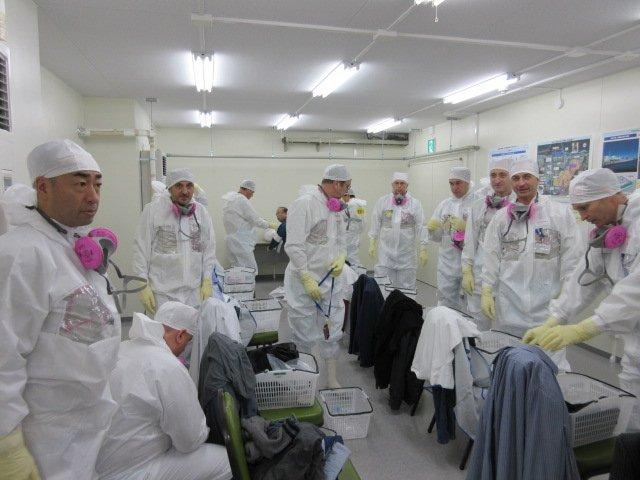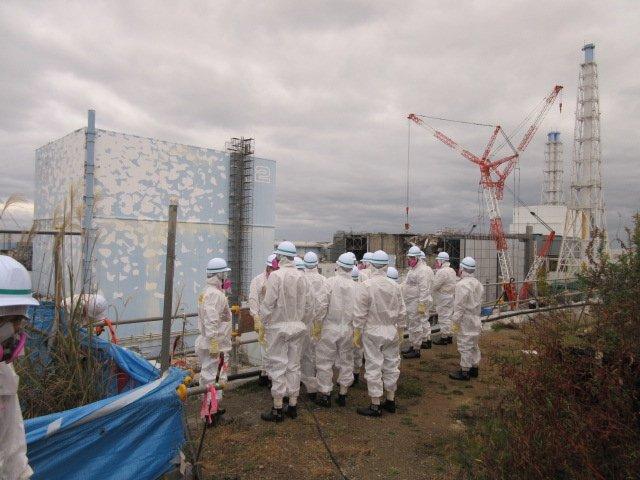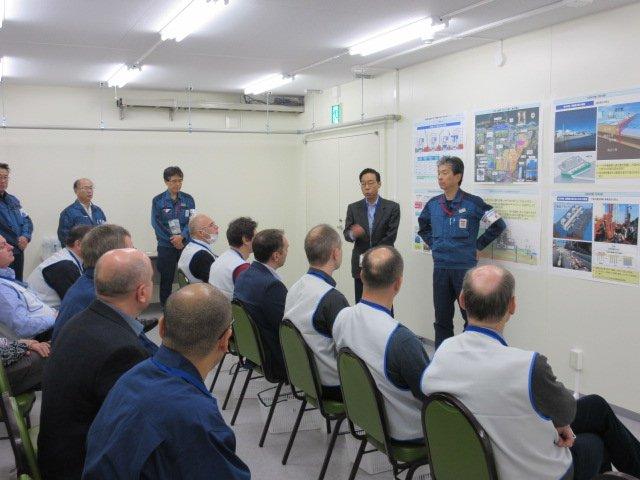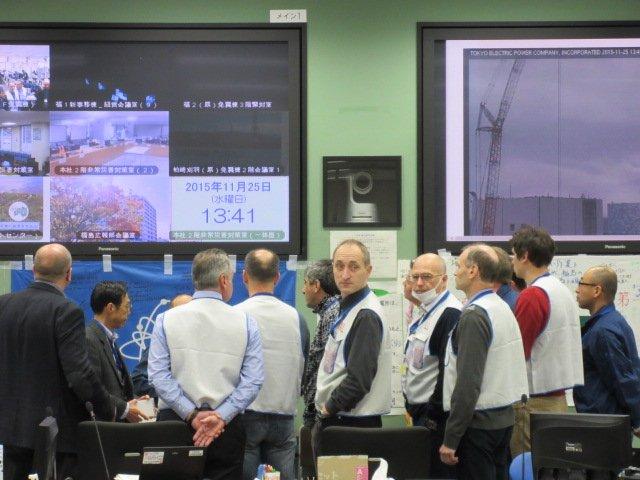| Русский / English |
|

|
NUCLEAR SAFETY INSTITUTE OF THE
RUSSIAN ACADEMY OF SCIENCES
|
INSTITUTE NEWS
09.12.2015Technical tour to the Fukushima Daiichi NPP on November 25-27, Japan
On November 25-27, 2015, Rosatom hold a seminar on Russian nuclear technology in Japan headed by Kirill Komarov, First Deputy Director General. The experts from the State Corporation “Rosatom”, FSUE MCC, FSUE PO "Mayak", FSUE RosRAO, "Radon", IBRAE RAN It was attended. The Japanese side was represented by "TEPCO" and organizations dealing with the consequences of the accident, as well as the experts in closed fuel cycle.
Rafael Arutyunyan, Deputy Director for Research and Coordination of Advanced Developments of IBRAE RAN:
Our side presented the technologies and experience, including that accumulated under the FTP NRS-1, associated with management of irregular radioactive waste, recycling of defective fuel and decommissioning of nuclear legacy facilities. That is, all that can be useful for the Japanese working at Fukushima. Te Japanese colleagues took a keen interest in the information. It was evident that they were very impressed by our technologies and decommissioned facilities. Works on closed fuel cycle ,which the Japanese colleagues also perform, were shown: MCC presented dry storage, experimental demonstration center and a program of its development.
With regard to "Fukushima," in particular, it has been demonstrated the technology for processing of tritiated water, which has been accumulated at Fukushima in the amount of hundreds of thousands of tons and, therefore, there are some problems of radioactive waste. Not only the water for cooling the corium residue enters inside, but the water from groundwater layers. Daily imbalance has nearly 300 cubic meters, which they placed in the storage tanks.
All of this information was extremely important. In addition, the issues of cooperation in manufacturing of NPP equipment designed for our plants abroad, as well as fast reactors, were discussed beyond the seminar. After a long stop, the Japanese are back to development of this field. They listened with interest the information from our institute (IBRAE RAN) about the emergency response system. They have the systems similar to our ARMS. However, they have not such important, in our view, elements in this system as the centers of scientific and technical support.
It was a meeting between two interested parties and an invitation to cooperate in the post-Fukushima activities and development of nuclear energy.
 |
IBRAE RAN © 2013-2025 | Site map | Feedback |



